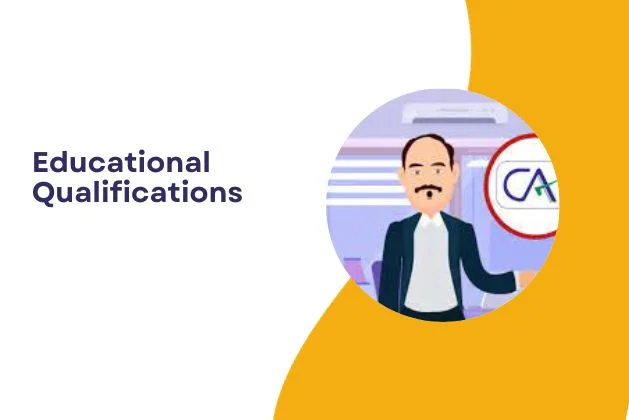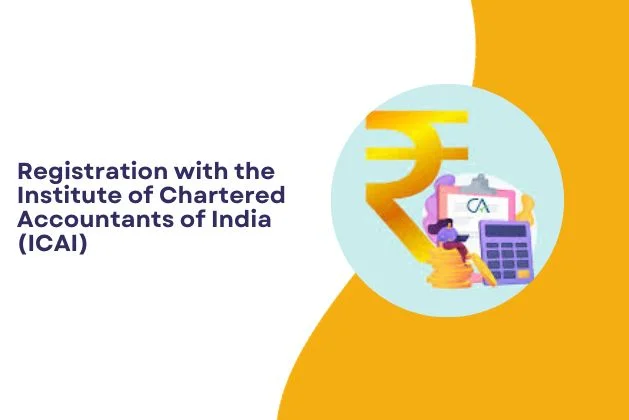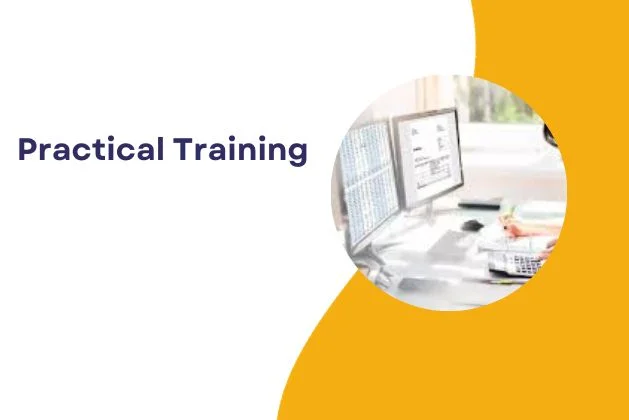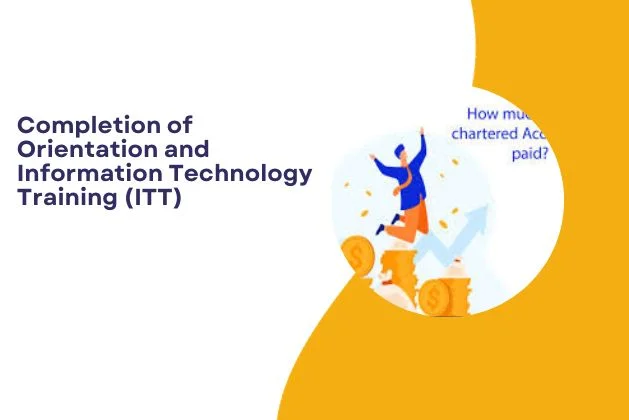Table of Contents
ToggleIntroduction
Beginning the rigorous journey towards becoming a chartered accountant course is a monumental undertaking that not only requires determination and hard work, but also grants access to a highly esteemed and fulfilling career in the realm of finance.
Aspiring CAs must navigate through a series of specific eligibility criteria in order to embark on this professional path.
In this blog, we will delve into the intricate details of the eligibility requirements for the Chartered Accountant course, providing invaluable insights and guidance for prospective candidates who are considering taking on this challenging but rewarding pursuit.
Educational Qualifications

To be eligible for the CA course, candidates must meet the following educational criteria:
For Foundation Course: Completion of 10+2 (Senior Secondary) examination from a recognized board.
For Intermediate Course: Successful completion of the Foundation Course or graduation in any discipline (excluding fine arts).
For Final Course: Completion of the Intermediate Course or graduation from a recognized university.
Tip: Ensure that your academic qualifications align with the respective stages of the CA course. Verify the recognition of your educational institution.
Registration with the Institute of Chartered Accountants of India (ICAI)

In order to pursue the prestigious CA course, candidates are required to register with the Institute of Chartered Accountants of India (ICAI) for each stage of the program.
This registration process is a crucial step towards becoming a certified chartered accountant and involves fulfilling a series of requirements set by the ICAI.
To begin with, candidates must submit all the necessary documents as part of their registration.
These documents include proof of their educational qualifications, which typically includes transcripts or certificates from their undergraduate degree program.
This serves as an important prerequisite for enrollment in the CA course, as it ensures that candidates have a strong foundation in accounting and related subjects.
In addition to educational qualifications, candidates must also provide proof of their identity during the registration process.
This could be in the form of government-issued identification such as a passport or driver’s license.
The purpose of this requirement is to ensure that all registered candidates are who they claim to be and to prevent any fraudulent activities.
Practical Training

Practical training, also referred to as articleship, is a crucial aspect of the CA (Chartered Accountant) course that every aspiring chartered accountant course must complete.
This essential component provides candidates with hands-on experience and practical knowledge in various areas of accounting, auditing, and taxation.
Through articleship, candidates are able to apply their theoretical learnings from the classroom to real-life scenarios, preparing them for the challenges of the professional world.
The Institute of Chartered Accountants of India (ICAI) mandates that all CA candidates must undergo a specified period of practical training as part of their course requirements.
Typically lasting for three years, this training is divided into two phases – the first phase involves one year of articled training under the guidance of a practicing Chartered Accountant course (CA), while the second phase requires two years of industrial training in an approved organization.
To make the most out of this valuable learning opportunity, it is crucial for candidates to plan ahead and carefully consider their options for articleship.
Also Read: Interview for Freshers
Completion of Orientation and Information Technology Training (ITT)

As a candidate on the path to becoming a Chartered Accountant course, it is necessary to fulfill certain requirements before sitting for the Intermediate and Final exams.
These requirements include completing both the Orientation chartered accountant course Course and ITT (Information Technology Training) programs.
The Orientation chartered accountant course Course serves as an introduction to the profession, providing crucial information about the role and responsibilities of a Chartered Accountant course.
It also covers important topics such as ethics, regulations, and professional standards that are essential for success in this field.
Similarly, the ITT program equips candidates with essential technical skills related to information technology that are necessary for their role as a Chartered Accountant.
It is highly recommended to enroll in these courses at the appropriate stages of your CA journey.
The Orientation Course should be completed before attempting the Intermediate exam, while the ITT program should be undertaken before appearing for the Final exam.
Clearance of Foundation, Intermediate, and Final Examinations
In order to obtain the prestigious title of a Chartered Accountant course, one must successfully pass all three stages of examinations: Foundation, Intermediate, and Final.
These exams are not to be taken lightly, as they hold great importance in the accounting profession and serve as a stepping stone towards achieving the desired designation.
The Foundation exam serves as an introduction to the field of accounting and lays the foundation for further studies.
The Intermediate exam builds upon the knowledge gained in the previous stage and delves deeper into complex accounting concepts.
Finally, the Final exam assesses one’s comprehensive understanding of all aspects of accounting and is considered the most challenging and crucial stage.
To ensure success in these exams, it is essential to devote ample time towards preparation.
This includes utilizing study materials provided by the Institute of Chartered Accountants course of India (ICAI), which are specifically designed to cover all topics included in the exams.
Additionally, joining coaching classes can provide valuable guidance and support from experienced professionals.
Compliance with Ethical and Professional Standards
CA candidates are expected to uphold high ethical standards and professional conduct.
This includes adherence to the ICAI’s Code of Ethics.
Tip: Familiarize yourself with the ICAI’s Code of Ethics. Understand the principles and commit to maintaining ethical integrity throughout your career.
Membership Admission
Upon successfully completing all stages of the CA course, candidates become eligible for membership admission to the ICAI and receive the prestigious Chartered Accountant designation.
Tip: Follow the membership admission process outlined by the ICAI. Ensure that all necessary documentation is submitted for a smooth transition to becoming a Chartered Accountant.
Conclusion
Becoming a Chartered Accountant course is a rigorous and fulfilling journey that requires dedication and hard work.
The road to achieving this esteemed designation is paved with challenges, but the rewards are boundless. To embark on this career path, one must first understand and fulfill the eligibility criteria set by the Institute of Chartered Accountants of India (ICAI).
These requirements serve as a strong foundation for aspiring CAs to build their knowledge and skills in the field of finance.
Each stage of the CA course is designed to equip individuals with the necessary expertise and competencies to excel in their professional endeavors.
It is essential to approach these stages with utmost diligence, commitment, and a drive for excellence.
This involves investing countless hours in studying, practicing, and honing one’s skills to meet the high standards set by the ICAI.
The journey towards becoming a Chartered Accountant course is not an easy one, but it is certainly worth it.
Frequently Asked Questions (FAQs)
For the Foundation Course, candidates need to have completed 10+2. For the Intermediate Course, successful completion of the Foundation Course or graduation in any discipline is required. The Final Course requires completion of the Intermediate Course or graduation from a recognized university.
Candidates need to register with the Institute of Chartered Accountants of India (ICAI) through the official website. The registration process involves submitting necessary documents, including proof of educational qualifications and identity.
Yes, practical training, also known as articleship, is an integral part of the CA course. Candidates must undergo a specified period of practical training under the guidance of a practicing Chartered Accountant or in an approved organization.
The Orientation Course and Information Technology Training (ITT) are mandatory components before appearing for the Intermediate and Final exams. Candidates should complete these courses at the respective stages of their CA journey.
Yes, candidates can pursue the CA course along with their graduation. However, certain restrictions may apply, and candidates are advised to check the eligibility criteria and plan their study schedule accordingly.
The pass rates for CA exams vary each attempt. The exams are known for their difficulty, and candidates are encouraged to thoroughly prepare by using official study materials and practicing with past exam papers.
The duration to complete the CA course varies for each candidate. It typically takes around 4-5 years, including the mandatory practical training period.
There is no specific age limit for enrolling in the CA course. Candidates can start their CA journey at any age as long as they meet the educational requirements.
Candidates are expected to comply with high ethical standards and professional conduct outlined in the ICAI’s Code of Ethics. Understanding and adhering to these principles are crucial throughout the CA course and the subsequent professional career.
Upon successfully completing all stages of the CA course, including practical training and examinations, candidates can apply for membership admission to the ICAI. This grants them the prestigious Chartered Accountant designation.



